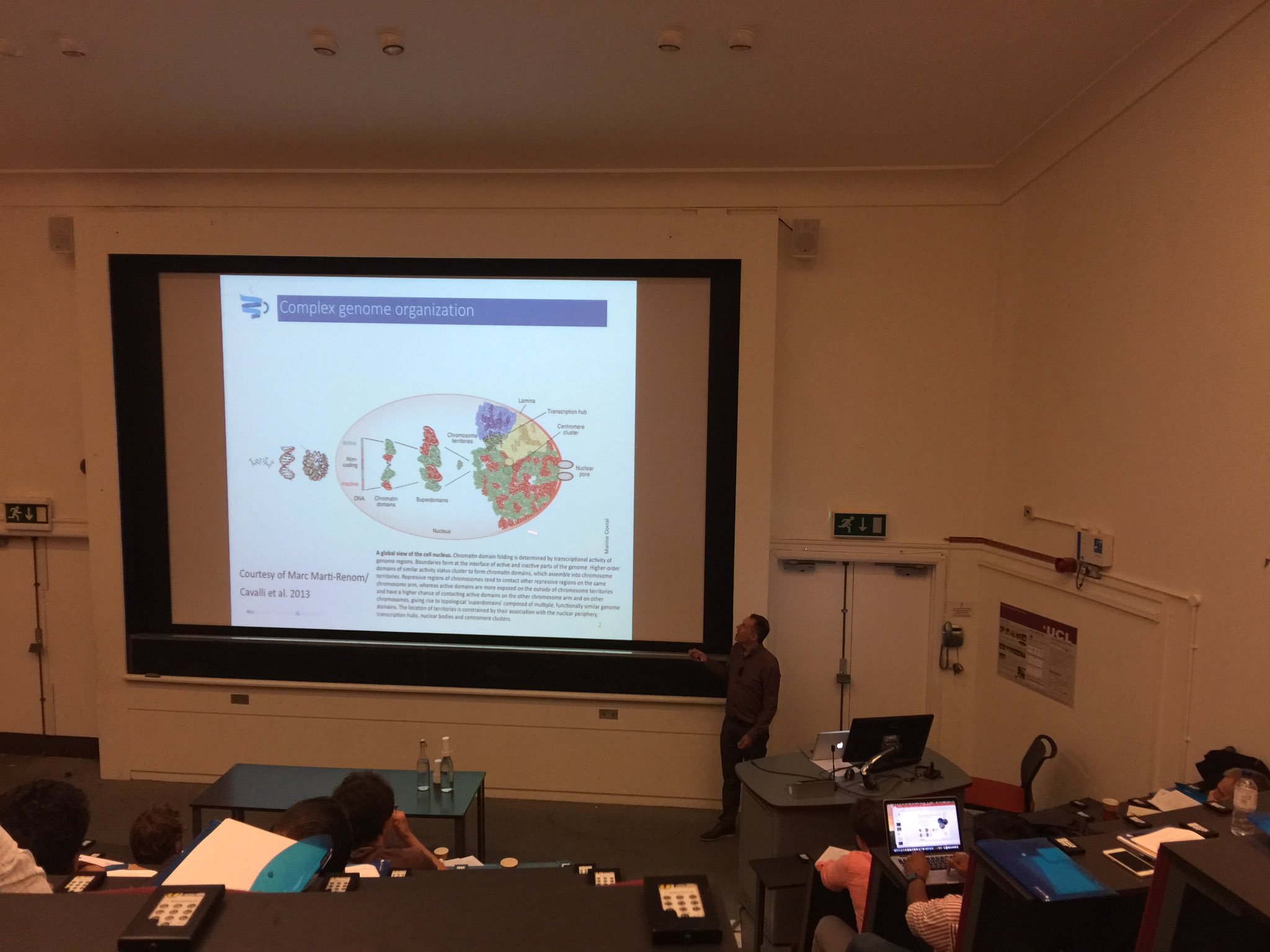
September, 9th 2016
MGMS – “Big Data in Biomolecular Systems”
School of Pharmacy, UCL, London
Prof. Charlie Laughton presented the challenges of the 3D/4D genomics community and the vision of the MuG VRE to the attendees at the conference “Big Data in Biomolecular Systems” that took place at the School of Pharmacy, UCL, London on Friday 9th September.
Abstract of Charlie Laughton’s presentation:
“Multiscale Complex Genomics: the Big data challenge”
In the ten years since the first human genome sequence was completed, available genomic sequence information has grown to be in the petabase (10^12 bp) scale, and is expected to reach the exabase scale in the next five years. As determining the sequence of genomes has become cheap and straightforward, today the big challenges in genomics are to determine how genotype information is transferred into phenotype and how pathological phenotypic changes can be predicted from genome alterations. Recent technological advances have given access to information on the folded state of chromatin, leading to the realisation that understanding how the genome is organized in space (3D genomics), and how this affects gene regulation, is required to fully understand the time-dependent connection between genome and phenome (4D genomics). 3D and 4D genomics represent some of the biggest challenges for biology and biomedicine in the next decade, and, like sequencing ten years ago, are fuelling massive technological advances and human effort. Storing and analyzing the huge amounts of data that are already being produced as a result of this effort, and integrating with the available sequence information, is the big data challenge of multiscale complex genomics. The MuG consortium (multiscalegenomics.eu) is responding to this computational challenge by connecting the 3D/4D genomics community to the HPC and Big Data world and providing a suitable set of tools and infrastructures to integrate the navigation in genomics data from sequence (1D) to 3D/4D chromatin dynamics data.

